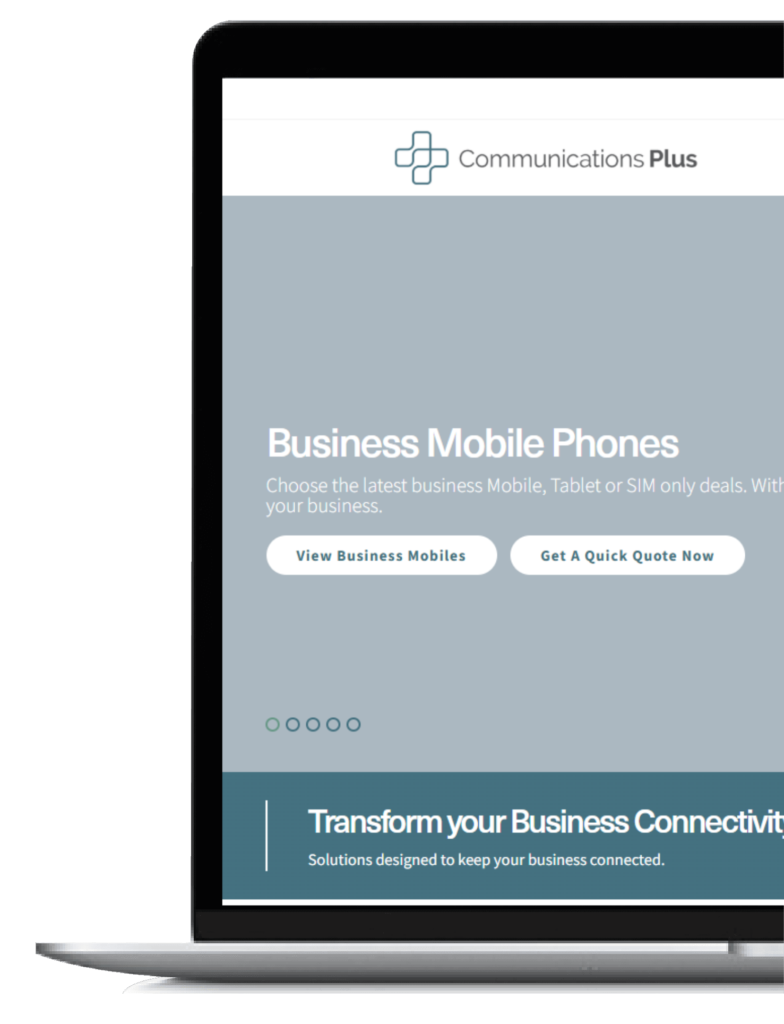With the number of people spending more time working remotely expected to double by the end of this year, we’re likely to see much higher investment in business phones and mobile devices.
There are hundreds of business mobile phone deals out there.
So how do you know you’re getting the best one?
Here are some things to think about when shopping for your next business mobile phone deal.
Are you using all your minutes?
Something important to keep in mind is how many minutes you’ve been using.
If your employees are working from home still, they’ll be using the phone a lot to speak to prospects and customers – as well communicate with each other.
You’ll need to look for a deal that’s able to offer you more minutes over anything else, with some deals offering unlimited minutes.
Although the idea of having unlimited minutes seems handy, it’s still important to think about if you’ll actually use them.
You don’t want to be paying for extra minutes you aren’t using, so if unlimited minutes isn’t something you’ll desperately need, it’s probably best to have another look.
Are you using all your data?
If you’re on the go a lot and need constant internet access, favouring the amount of data in your tariff is a must.
Having a good data plan is essential if you and your employees need 4G/5G access for video calls on the go, without it you’ll all struggle.
For instance, a one hour meeting on Zoom uses about 2% of your monthly data, which if your employees are needing to take part in meetings daily or even just a few times a week can add up quickly.
Music streaming apps like Spotify or Apple Music would use about 3GB of data for every two hours of listening.
Lots of contracts offer unlimited data, but if it isn’t something you think you’ll need, there’s no point paying extra for it to go to waste.
What support are you getting?
If you’re not getting good, all round support from your provider, it might be time to think about switching.
On top of the everyday stresses you’re already facing with running your business, It can be tricky to resolve technical issues on your own and if you’re wasting time fixing problems with your phone and potentially causing more damage if you aren’t sure what you’re doing.
If your phone gets broken or if it crashes unexpectedly you want to be sure you’ll have access to tech support to resolve the problem quickly or a replacement phone while you wait for yours to get fixed.
If you’re stuck with a broken phone with no tech support to resolve your issues, you can’t be contacted, meaning you could miss important sales calls and lose potential business while you wait for a new phone.
Sometimes mishaps are unavoidable, but your contract provider should be able to offer you technical support whenever you need it at no extra cost – to make sure you’re not going to miss out.
Have you got a contract length that suits you?
How long do you need your contract for?
Are you testing the waters with business phones and only want them for a short time?
Or are you investing for you and your employees to keep them long term?
Most long term contracts run between 12 and 24 months, but if you’re looking for something short term, you can take out a SIM only contract, with some running on a month by month basis.
When signing a long term contract, make sure you’re aware if there’s an early upgrade available and if there’s a fee to get out of or cancel your contract early.
If you take out a 2 year contract, your phone most likely will be outdated as the deal comes to an end, which comes with a handful of potential problems.
Your phone could become slow, you might notice your battery life getting worse, your apps can crash or freeze and your storage will become full – which if you’re dealing with lots of customers isn’t ideal when trying to get things done efficiently.
When was the last time you renewed your business phone’s contract?
If it’s been a while since you last renewed your contract, you might’ve noticed you’re not getting what you need from it anymore.
You might be running out of data quicker than before, or you’re not making as many calls as you used to.
If you took out a contract two years ago that cost you £45 a month for 150GB of data and 2000 minutes, could you negotiate a new deal and get the same amount for cheaper?
Maybe you could get more minutes and data if you’re happy to carry on paying £45 a month?
You don’t want to be wasting money on a contract that’s falling short or paying for features you’re not using, so make sure to look at all your options before you think about upgrading.
How expensive are roaming charges?
If you go on business trips abroad a lot, it’s important you know how much your provider charges for using data, texts and minutes while you’re away, if any.
According to an article published by the BBC, big providers like Three, EE and Vodafone have all said they will reintroduce a roaming charge of £2 per day for their customers to use data and minutes from their tariffs in EU countries.
Some operators, like O2, say they aren’t planning on reintroducing roaming charges, and you’ll be able to use the minutes, texts and data included in your tariff with no extra cost, but within reason.
Are you better off getting a SIM only contract for your business phone?
There are a few reasons why you might be better off looking at getting a SIM only contract.
Maybe you’re not ready to part with your current handset or you don’t want to commit to a long term deal?
SIM only contracts allow you to keep your old phone, but adjust the amounts of minutes, texts or data that’s included if needs be.
If your employees all use iPhones for example and they don’t mind having one phone, investing in a SIM only deal might be the best option for your business.
The only downside is that your employees have to agree to take the SIM card and potentially change their numbers as well.
When you’ve got employees using all sorts of handsets, you might be best sticking to a long term contract.
If you want the latest smartphone but on a SIM only contract you’ll have to pay for it outright which, unsurprisingly, is very expensive but ideal if you don’t want to pay a ‘rental’ cost for the phone with a long term contract – doing this will bring your monthly costs down as well.
Are you negotiating or just taking what you get?
From your provider’s point of view, having you pay slightly less for your contract every month is better than you taking your business elsewhere.
According to a survey by Money Saving Expert, 65% of mobile customers said they were successful in negotiating a better deal with their provider.
It’s important to get your timings right and negotiating a better deal a month or two before your contract comes to an end is the best thing you can do.
Knowing how much you’re using in terms of minutes, texts and data is also key to getting the right deal for you.
Be firm when negotiating a new deal and never go with the first offer they give you because the chances are they’ll be able to offer you something better if you haggle.
At Communications Plus, we offer a wide range of devices and contract types to suit you and what you need for your business.
Whatever you’re looking for, we’ll be able to help.
For more information or to make an inquiry, get in touch with our team of specialists today.










